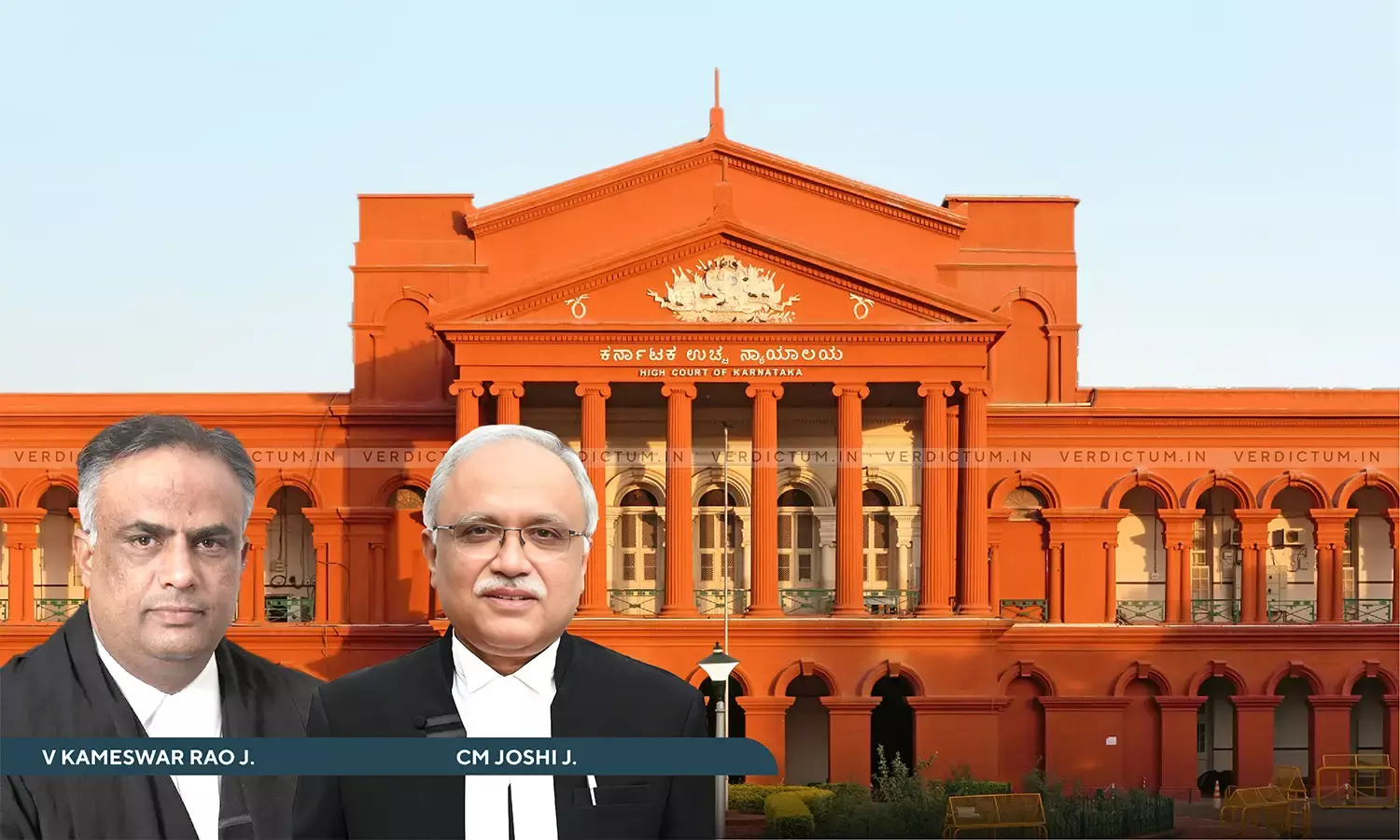Co-Sharers' Right To Seek Partition Is A Recurring Cause Of Action As It Is A Substantive Right: Karnataka HC
The Karnataka High Court has reiterated that the co-sharers' right to seek partition is a recurring cause of action.
In that context, the Bench of Justice V Kameswar Rao and Justice CM Joshi observed that, "co-sharers’ right to seek partition is a recurring cause of action, until and unless the partition between members of the joint family is effected, the joint owner can file a suit for partition until partition is actually effected irrespective of the fact whether earlier suit for such partition was dismissed for non-prosecution or the earlier decree for partition was not acted upon. It held that, right to seek partition is a substantive right."
This appeal challenged the order passed by the II Addl. Senior Civil Judge and J.M.F.C., Kolar, which allowed an application filed by respondents No. 6 to 10 under Order VII Rule 11 read with Section 151 of the Civil Procedure Code (C.P.C.). The court rejected the plaint in O.S.No.144/2014, citing that it was barred under Order IX Rule 9 of the C.P.C. and advised the plaintiffs to seek restoration of an earlier dismissed suit, O.S.No.534/2007.
The case involved ancestral/joint Hindu Undivided Family properties purchased by the appellants' and respondent No. 1's father, Sri Chikkamuniyappa, who died intestate in 1994. The appellants claimed that respondent No. 1 had obtained a registered sale deed from them in 2006. Subsequently, appellants No. 6 and 7, along with respondents No. 3 to 5, had filed a suit for partition (O.S.No.534/2007) against respondent No. 1, which was later dismissed for non-prosecution.
In 2014, the appellants filed a new suit (O.S.No.144/2014) seeking partition of the same properties and challenged various sale deeds executed by respondent No. 1. They also filed an application for a restraint order against respondents No. 6 to 10, but the Trial Court dismissed this application and the subsequent appeal against that decision.
Respondents No. 6 to 10 then filed an application to reject the plaint, arguing it was barred by law, particularly in light of the Supreme Court judgment in Prakash & Others v. Phulavati & Others. The trial court agreed, ruling that the appellants could not file a new suit on the same cause of action after the earlier suit was dismissed for non-prosecution, and advised them to seek restoration of the original suit.
The appellants argued that the Trial Court erred, as a suit for partition is continuous in nature, and the cause of action in the two suits was different. They contended that there is no bar under Order IX Rule 9 of C.P.C. for filing a fresh suit for partition. However, the respondents defended the trial court's decision, asserting that the bar under Order IX Rule 9 applied even to partition suits, especially when the earlier suit was dismissed for non-prosecution.
The primary issue in this case is whether the Trial Court was justified in allowing the application under Order VII Rule 11 of the Civil Procedure Code (C.P.C.) by holding that the second suit is barred by Order IX Rule 9 of the C.P.C. Order IX Rule 8 allows for the dismissal of a suit if the plaintiff fails to appear, and Order IX Rule 9 bars the plaintiff from filing a fresh suit on the same cause of action unless sufficient cause is shown.
In this case, appellants No.1 to 5 were not parties to the earlier suit (O.S.No.534/2007), so the dismissal of that suit for non-prosecution does not apply to them. They were entitled to file the subsequent suit (O.S.No.144/2014) for partition. As for appellants No.6 and 7, who were plaintiffs in the earlier suit, they were not barred from filing a new suit as the reliefs sought in the two suits were different. The earlier suit was for partition, while the later suit included challenges to release and sale deeds, involving distinct causes of action.
Legal precedents confirm that the right to seek partition is a recurring cause of action in joint family properties, as established in cases like Asha Sharma v. Amar Nath and Madhura Gramani v. Thummala Sesha Reddi. The Supreme Court in Ganesh Prasad v. Rajeshwar Prasad also clarified that Order IX Rule 9 of the C.P.C. does not bar a subsequent suit when the causes of action differ, particularly in partition suits, where the right to seek partition persists until the property is fully divided.
In conclusion, the High Court held that the Trial Court's decision to bar the second suit was incorrect, as the causes of action were distinct, and the right to seek partition remains a continuing right until fully resolved.
Cause Title: Srinivas & Ors. vs MC Narayanaswamy & Ors.
Click here to read/download the Judgment




